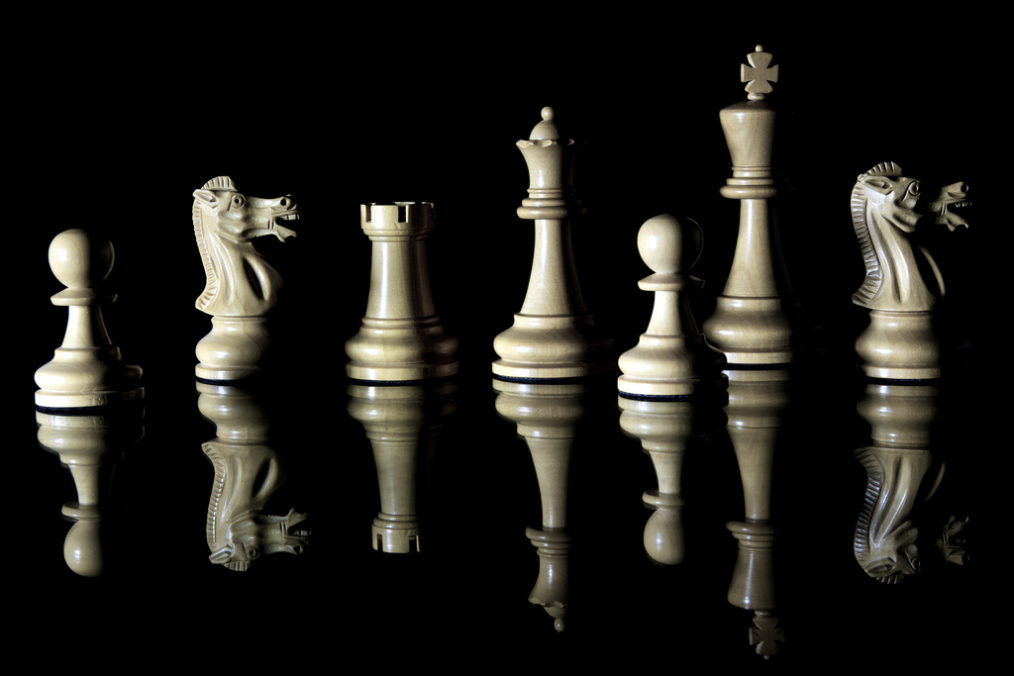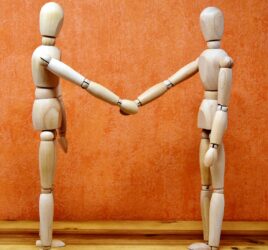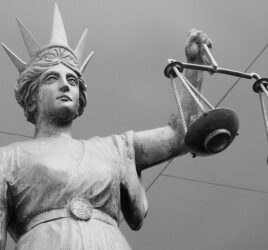
With great power comes great responsibility… right?
On January the 20th, Donald Trump officially became the 45th President of the United States of America. At the time when Trump was still a candidate, many doubted his presidential qualities due to his display of rather inappropriate behavior (i.e., the sexist language, making fun of disabled people, adding to racial and ethnic tensions, aggressive tweeting). Yet, many people remained hopeful. Their hope was that –once president– Trump would feel the responsibility that comes with the job and would tone down. After all, the president of the USA is often seen as the most powerful person on earth, and with great power comes great responsibility, right?
“At this moment we are several weeks into his presidency, and it doesn’t look as though Trump has learned to tone down and play nice.”
At this moment we are several weeks into his presidency, and it doesn’t look as though Trump has learned to tone down and play nice. Indeed, many have criticized the fact that he suggested that the “court system” was a threat to national security, his immigration ban from several Muslim-majority nations, his public condemnation of a company for cutting his daughter’s fashion line, the way he offended the leaders and people of various nations, his presentation of ‘alternative facts’, etc., etc.
One way to explain this is to take Trumps personality into account. And indeed, the popular press has been zooming in on Trump’s alleged personality traits. One of Trump’s suspected personality traits that pops up over and over again is narcissism.[1] Narcissists have a strong sense of entitlement, and a constant need for attention and admiration. They are haughty, vain, and see themselves as superior to others.[2] The other personality trait that tends to get mentioned a lot is Machiavellianism.[3] Machiavellians are characterized by cynical and misanthropic beliefs, callousness, a striving for agentic goals (i.e., money, power, and status), and the use of calculating and cunning manipulation tactics.[4]
Of course, one needs to be careful in calling people a narcissist or a Machiavellian (even when one refers to narcissism and Machiavellianism as personality traits, and not as clinical disorders) without thorough and careful screening and assessment. As a consequence, scientific writings about the alleged personality traits of Trump have not yet gone as far as the popular press, although a recent analysis of Trump’s public persona suggested that he scores very low to exceptionally low on Honesty-Humility, Emotionality, Agreeableness, and Conscientiousness; a set of traits associated with narcissism, psychopathy, and Machiavellianism.[5] In addition, another recent analysis of announcement speeches of presidential candidates showed that Trump scored relatively high on grandiosity ratings[6] (and feelings of grandiosity are characteristic of narcissism). Thus, careful as we should be in our conclusions, the available material does not paint an encouraging picture of Trump’s personality.
“Careful as we should be in our conclusions, the available material does not paint an encouraging picture of Trump’s personality.”
“So what?” some may ask. “Let’s assume for argument’s sake that Trump has a narcissistic or Machiavellian personality. He has only just entered the White House. Can we not expect that he will try to reign in these supposed traits and clean up his act now that he is a powerful president?” At this point the issue becomes interesting, because research on personality and leadership suggests that should Trump indeed be imbued with narcissistic or Machiavellian tendencies, this may help us predict his behavior in this situation. This research however tells us that the answer to the question, unfortunately, is no. Indeed, people do not necessarily behave better when they are made responsible for others’ fates. In fact, power often tends to increase the correspondence between internal beliefs, states and traits on the one hand and behavior on the other.[7] In other words, powerful people are more likely to do whatever they feel like. This is good news if the person in power is highly cooperative and pro-social, or has other characteristics that may serve the group, the organization, or the nation. However, it is bad news if the person in power has more negative traits. Traits like narcissism and Machiavellianism may be reflected more strongly in behavior when the person is more powerful. For example, in a recent study we[7] investigated the relationship between leader narcissism, Machiavellianism, and psychopathy on abusive supervision in teams; we also assessed if these relationships changed depending on leader power.
“Indeed, people do not necessarily behave better when they are made responsible for others’ fates. In fact, power often tends to increase the correspondence between internal beliefs, states and traits on the one hand and behavior on the other. In other words, powerful people are more likely to do whatever they feel like.”
Comprising a total of 225 organizational teams, our data revealed that supervisors who scored higher on Machiavellianism were, as expected, seen as more abusive by their subordinates. In other words, highly cynical and calculating leaders tended display more (non-physical) hostility towards their subordinates, for instance by ridiculing them, putting them down in front of others, lying to them, or by being rude, untrustworthy, angry and mean. Moreover, this relationship was especially strong when these supervisors reported having more power within the organization. Thus, rather than making them behave responsibly, power only increased these leaders’ abusive tendencies.
Interestingly, narcissistic leaders did not seem to be more abusive towards subordinates, not even when they had high power. This is in line with other research showing that narcissists are not likely to aggress against others, at least when they are not provoked. However, narcissists are prone to fragile and contingent self-esteem and may feel the need to restore their self-esteem when it is threatened. One strategy to build self-esteem is to rely on aggression. Narcissists are thus mainly aggressive towards those who threaten their ego (for instance, individuals who provide them with negative feedback). Note that Trump seems to do this a lot as well: When his ego is threatened (for instance when he is denied something or when he gets negative feedback in some way or fashion) angry tweets are bound to be posted.
Narcissists are thus mainly aggressive towards those who threaten their ego (for instance, individuals who provide them with negative feedback). Note that Trump seems to do this a lot as well: When his ego is threatened (for instance when he is denied something or when he gets negative feedback in some way or fashion) angry tweets are bound to be posted.
All in all, we should perhaps hope that Donald Trump turns out not to be a true narcissist or Machiavellian after all, or that –if he is a narcissist– he will not feel provoked into becoming more aggressive than sending angry tweets. Or, better still, that he is imbued with a host of wonderful qualities that will transpire more strongly now that he is the president of the United States. Or that the results of personality and leadership studies do not generalize to presidents. We can only hope.
References
[1] http://www.theatlantic.com/magazine/archive/2016/06/the-mind-of-donald-trump/480771/
[2] Raskin, R., & Terry, H. (1988). A principal components analysis of the narcissistic personality inventory and further evidence of its construct validity. Journal of Personality and Social Psychology, 54, 890–902.
[3] https://www.washingtonpost.com/opinions/donald-trump-is-the-american-machiavelli/2016/11/10/8ebfae16-a794-11e6-ba59-a7d93165c6d4_story.html?utm_term=.3e6747f8eedb
[4] Christie, R., & Geis, F. L. (1970). Studies in Machiavellianism. New York: Academic Press.
[5] Visser, B. A., Book, A. S., & Volk, A. A. (2017). Is Hillary dishonest and Donald narcissistic? A HEXACO analysis of the presidential candidates’ public personas. Personality and Individual Differences, 106, 281-286.
[6] Ahmadian, S., Azarshahi, S., & Paulhus, D. L. (2017). Explaining Donald Trump via communication style: Grandiosity, informality, and dynamism. Personality and Individual Differences, 107, 49-53.
[7] Wisse, B. & Sleebos, E. (2016). When the dark ones gain power: Perceived position power strengthens the effect of supervisor Machiavellianism on abusive supervision in work teams. Personality and Individual Differences, 99, 122-126.
NOTE: image by Adrian Askew, licensed under CC BY 2.0.



